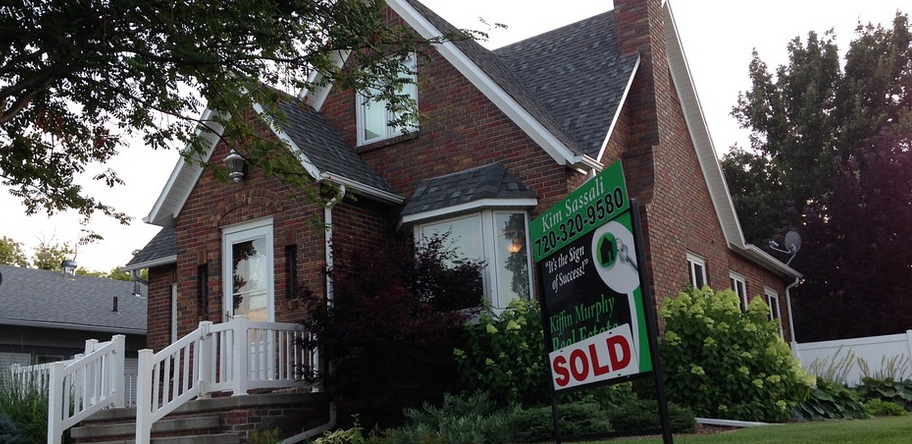In today’s world, yield is nearly impossible to find. Most central banks have set interest rates below inflation rates… so if your money is in the bank it’s just losing value.
For you and I to see real returns we have to look for returns of at least 5% or more.
I won’t even consider an investment if it yields less than 10%.
For the passive investor, who does not want to actively manage their portfolio, there are two popular options: dividend paying stocks or rental properties.
These two options are really the only two areas that offer investors an easy path in (and out) for today’s investing environment. Yes, there are other places out there, but those places may have barriers to entry or lack property liquidity to qualify as a ‘safe’ investment.
So, I put together a quick pros and cons list to help you decide which is better for you: Rental Properties or Dividend Stocks?
Really it’s completely subjective as to which one is better. Every investor has different goals, so each strategy is better (or worse) for different people.
However, it’s important to note that rental properties are completely different than dividend stocks on a variety of measures.
Also, lots of people think that REITs are like rental properties, which is simply not true. Yes, REITs deal with real estate, but the advantages (and disadvantages) of rental properties versus REITs are completely different. Also the values of REITs on the stock market versus the value of real estate on an individual basis are not correlated at all.
This is by no means a comprehensive list, as there is much MUCH more to consider. DIVIDEND STOCKS
DIVIDEND STOCKS
Pros:
-Dividend stocks offer a great passive way to increase your wealth. If the particular dividend stock that you invest in has the ability to reinvest your dividend, you can start to use those dividends to compound your position within the company – a position that grows at a surprisingly fast rate over the years.
-Dividends also allow you to ‘forget’ what’s going on with the company (in terms of the stock price) over the long haul.
-Dividend stocks allow for you to be very liquid and flexible. If you want to buy more, then you can simply click your mouse a couple times and voila. Done. You own more. If you want to sell, then you just sell.
-Dividend stocks are usually more ‘solid’ companies. Companies that have the ability to pay their investors several times a year usually have a great business that has been around for a long time and has a bright future. These companies might not fluctuate in price much, but they steadily reward their investors.
Cons:
-Dividend stocks can decrease or cut their dividend at any time. It’s essentially up to the management of the company. Depending on how the economy is, how the business is doing, or what the management’s strategy is, the dividends can change.
-Dividends are not always an indicator of a great company. Investors can be tricked into investing in a company because they have extremely high dividends.
-It’s important to look at the time frame and consistency of how a company pays it’s dividends. If it pays randomly with fluctuating prices, this may indicate a company that is not only unstable but also has shaky management. Conversely, a company with steady and continually increasing dividends is a great indicator of a solid investment.
-Dividend stocks don’t necessarily have tax incentives. This is mostly in comparison to real estate. RENTAL PROPERTIES
RENTAL PROPERTIES
Pros:
-You can leverage yourself with (sometimes) very little risk. Depending on what kind of loan you get, you may not have to spend much money out of your pocket to purchase a property that may normally be out of your price range, if you were to buy it out right.
-The tenant of your property is paying off your debt (your loan) and they are paying you (your monthly profit after expenses).
-In theory, the rental market does not fluctuate as much as the real estate market does. What this means is that when someone is renting out a property that they own, they usually rent it out for what their monthly loan payment is. If the property decreases in value, then the owner still charges rent to cover their mortgage payment. This is a very sticky topic, as the rental market is highly dependent on supply and demand. Many believe that the rental market in the US is very bubbly right now. Others argue that property prices will continue to go up, which would raise rents even more.
-There are significant tax incentives to not only the profits you get from rental properties, but also the way you buy and sell the properties. This is obviously very complex with endless amounts of tax strategies that can be used.
Cons:
-Rental properties are hard to manage! Of course there are companies that manage rental properties, but it’s a tough business to be in. Any landlord will attest to how much of a pain in the butt it is to maintain a property.
-Even though property (in theory) appreciates over time, the physical property is actually depreciating. Things like pipes, roofs, floors, etc. need maintenance and replacement. These are capital expenditures which must be equated into the final profit. Also, you are responsible for taking care of these problems!
-Rental properties are not liquid in comparison to dividend stocks. It usually takes a minimum of a month to do a property transfer, so it’s not like you can just get your money out. It’s also a very competitive market to buy. It’s not a like a stock where you can just buy more at any time. Again, this is a very brief list of things to consider.
Again, this is a very brief list of things to consider.
It’s also important to note that both of these spaces are extremely crowded. They are very competitive and value is difficult to find because there is so much competition.
The best ways to make money are to locate opportunities which are undiscovered and/or uncrowded.
You can find out about all kinds of ideas here. I write several times a week about this, for free.




